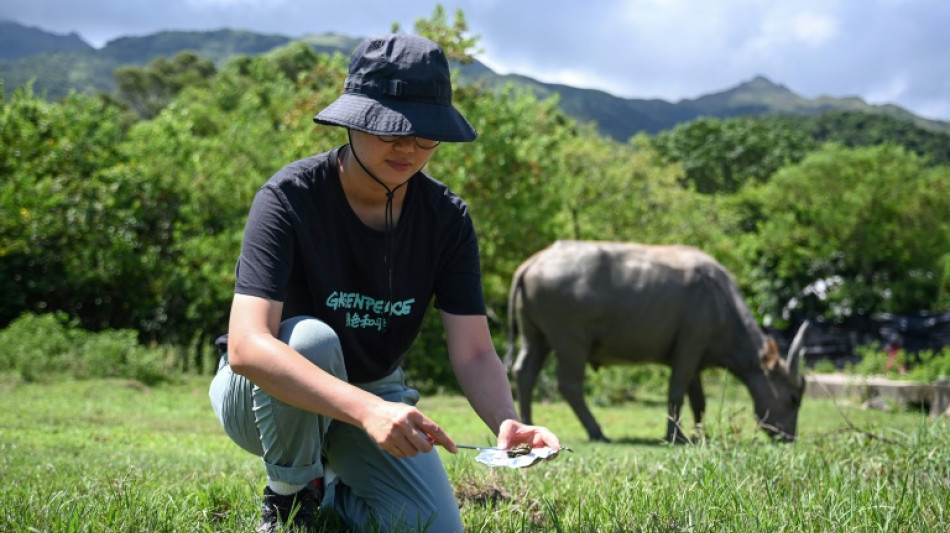
SCS
0.0200

Microplastic particles turned up in the vast majority of waste samples taken from Hong Kong wildlife in a Greenpeace study, the group said Monday, suggesting that animals still ingest plastics even if they are not feeding in urban areas.
The report was released ahead of November talks in South Korea, where governments will be looking to seal a potentially groundbreaking deal tackling the problem of plastic pollution.
The scale of the issue is vast -- microplastics have been found in the deepest ocean trenches, on the highest mountain peaks, in the atmosphere, and even in breastmilk.
Though best known as a city of skyscrapers, Hong Kong is also home to huge swathes of undeveloped countryside home to animals like buffalo, boars, wild cattle, macaques and porcupines -- the species included in the Greenpeace survey.
The group, alongside researchers from local and Taiwanese universities, collected 100 faeces samples from seven locations in 2022, and found 85 percent of them contained microplastics, Greenpeace said in a press release.
"The findings of this study are important, proving that wild animals can ingest microplastics in the countryside, where it is away from urban areas and human activities," said researcher Christelle Not of the University of Hong Kong.
"As an increasing number of studies find microplastics in various natural environments, wildlife, and even human bodies, plastic pollution has become a global issue that urgently needs to be addressed," she added, calling for "a strong global plastic treaty" help meet reduction targets.
The most common types of microplastics detected in the Greenpeace study were polyethylene and polypropylene, commonly found in single-use packaging, takeaway containers and disposable utensils.
During a recent AFP visit to Pui O River on Hong Kong's Lantau island with researchers, buffalo could be seen bathing in the stream a short distance from plastic garbage scattered along the banks.
"If animals ingest microplastics from the environment, those could invade our ecological system tier by tier and affect human health," Greenpeace campaigner Leanne Tam told AFP.
Little is yet known about the specific impacts of microplastic particles on human health and the environment.
Hong Kong, a city of 7.5 million people, sends more than 2,300 tonnes of plastic waste to landfills every day, according to the government's 2022 waste report.
In April, the city enforced a ban on polystyrene utensils in restaurants for both dine-in customers and takeaway.
But a full ban -- which covers more plastic materials used by businesses -- "still lacks a clear timetable", Greenpeace said.
Z.Marek--TPP